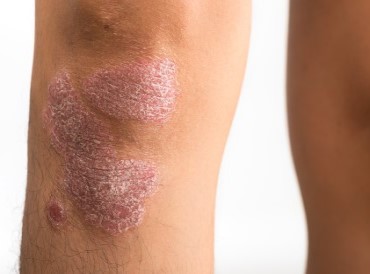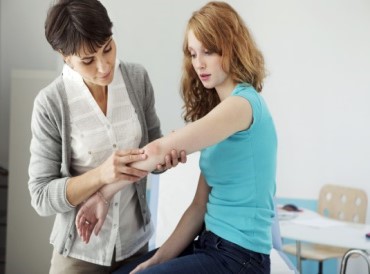What is Psoriasis?
Psoriasis is a skin condition that causes red scaly patches of skin, most often on the outside of the elbows, knees or scalp, but it can appear anywhere on your body.
About 2% of people in the UK have psoriasis, which is about 1.3 million people.
Psoriasis is a chronic condition which means you may have it for life, but the symptoms of it may not always be visible. There may be times where your symptoms get better (remission) and periods when they get worse (flares).
Psoriasis is not infectious and is not contagious, so you cannot catch it from someone else.
Find out more

Types of Psoriasis
There are several forms of psoriasis, although plaque psoriasis is the most common
Read more
What causes Psoriasis?
It's unclear what causes psoriasis, but the immune system and genetics may play a role
Read more
Diagnosing Psoriasis
Your GP or dermatologist can diagnose psoriasis, and help identify the specific form
Read moreThe information provided on this website is not a substitute for professional medical care. If you have any concerns about your health or medicine, you should consult your healthcare specialist or general practitioner.
If you get any side effects, talk to your doctor, pharmacist or nurse. This includes any possible side effects not listed in the patient information leaflet. You can also report side effects directly in the UK via the Yellow Card Scheme website: https://yellowcard.mhra.gov.uk/ or via the the MHRA Yellow Card App in the Google Play or Apple App Store. In Ireland please report via the HPRA at https://www.hpra.ie/homepage/about-us/report-an-issue.
You can also report adverse events to UCB at UCBCares.UK@ucb.com or UCBCares.IE@ucb.com.
Send your Feedback!
Would you recommend the UCBCares website to other visitors?